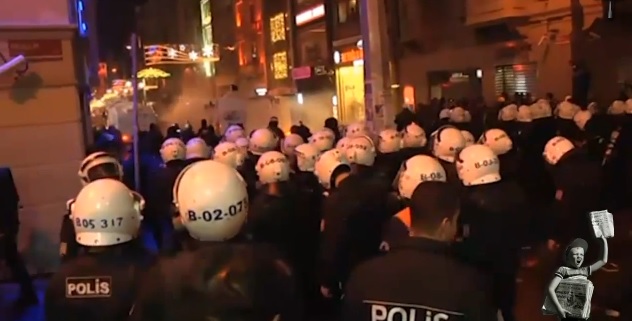Arabic, American, and Israeli outlets have all in recent days published pointed analysis questioning the degree to which Turkey can still be called a genuine democracy, as the country’s government moved to consolidate recently-passed measures that severely censor Internet use and empower Ankara to conduct broad online surveillance. Writing in Al-Arabiya, Istanbul-based journalist Mahir Zeynalov blasted the “authoritarian rule” of Turkish Prime Minister Recep Tayyip Erdogan, citing among other things a “storm of blatant lies” targeting Erdogan’s political opponents and efforts by the Islamist leader to “speed up the process of burying Turkey’s hard-won democracy.”
It is no secret that Turkey jailed more journalists than any other country in the world, including Iran and China. It falls in bottom 30 countries in the ranking of press advocacy groups. Last week, even the prime minister admitted that he had to “teach the media” how to work because they allow people “insulting me.” For Erdogan, criticism means insult.
With a rubber stamp parliament, an exceptionally weak president, a judiciary under the government’s control, rampant corruption, the leaders’ divisive rhetoric and a media under Erdogan’s tight control, Turkey is no more the democracy that was touted as a role model for post-revolution Arab nations only a few years ago.
Zeynalov specifically unpacked the dynamics of a recent anti-corruption sweep that entangled the party’s elites, to which the AKP responded by purging literally thousands of judicial figures. Alp Aslandogan, the President of the Alliance for Shared Values, also unloaded on Erdogan and the ruling Justice and Development Party (AKP), describing its reactions to the probe as having “led to [the] collapse of rule of law” and having “significantly undermined the foundations of Turkish democracy.”
The current trend is toward the hegemony of the executive branch of the government and the situation is regarded as a move away from EU democratic states and toward the authoritarian regimes of the region.
Last week Mieczyslaw Boduszynski and Kristin Fabbe – respectively professors at Pomona and Claremont McKenna Colleges – worried in the Christian Science Monitor that democracy in Turkey had been derailed, citing among other things Ankara’s “scapegoating” of NGOs as causes of domestic unrest. The Jerusalem Post ran its story on Wednesday under the headline “is another Mideast democratic experiment over?” and further described last summer’s crackdown on anti-government protestors, which drew heated condemnations from Europe, and a recent finding by Reporters Without Borders that ranked Turkey 154th out of 180 countries in press freedom. The same report ranked Russia 148th.
[Photo: World News / YouTube ]




